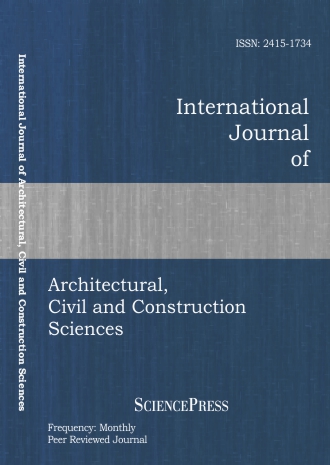
Scholarly
Volume:13, Issue: 7, 2019 Page No: 383 - 389
International Journal of Architectural, Civil and Construction Sciences
ISSN: 2415-1734
55 Downloads
Investigating the Effective Parameters in Determining the Type of Traffic Congestion Pricing Schemes in Urban Streets
Traffic congestion pricing – as a strategy in travel demand management in urban areas to reduce traffic congestion, air pollution and noise pollution – has drawn many attentions towards itself. Unlike the satisfying findings in this method, there are still problems in determining the best functional congestion pricing scheme with regard to the situation. The so-called problems in this process will result in further complications and even the scheme failure. That is why having proper knowledge of the significance of congestion pricing schemes and the effective factors in choosing them can lead to the success of this strategy. In this study, first, a variety of traffic congestion pricing schemes and their components are introduced; then, their functional usage is discussed. Next, by analyzing and comparing the barriers, limitations and advantages, the selection criteria of pricing schemes are described. The results, accordingly, show that the selection of the best scheme depends on various parameters. Finally, based on examining the effective parameters, it is concluded that the implementation of area-based schemes (cordon and zonal) has been more successful in non-diversion of traffic. That is considering the topology of the cities and the fact that traffic congestion is often created in the city centers, area-based schemes would be notably functional and appropriate.
Authors:
References:
[1] D. Schrank, T. Lomax, “The 2009 urban mobility report,” College Station: Texas Transportation Institute, Texas A&M University, 2009.